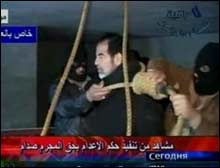9/11 has become such a given — such a fixed star in American culture and politics — that as the tenth anniversary approached, it was easy to imagine we had somehow come to terms with the attacks.
When the pictures and stories and commemorative magazines first surfaced, we wanted to resist. Don't we know this stuff already? Isn't it all a bit exploitative?
Yes, of course. It is. But it is also powerful.
Ten years on, 9/11 is still raw. And all the errors and ambiguities of the wars that followed only add to the sense of irresolution.
There is still a lot to think through. The Phoenix asked some of the brightest minds in Rhode Island to help. (Interviews are edited and condensed.)
NAOMI MANDEL
NOTHING'S SACRED
Mandel, a professor of English and comparative literature at the University of Rhode Island, focuses on atrocity and violence — tackling painful questions with unexpected spunk and irreverence.
YOU'VE WRITTEN ABOUT THE ASSUMPTION THAT ATROCITY IS UNSPEAKABLE — THAT IT DEFIES LANGUAGE. HAS 9/11 DEFIED LANGUAGE? I think it has not. The kind of investment in the unspeakable, the unseeable, the unrepresentable, that characterized the Holocaust and that characterized initial responses to 9/11 in literature and in public discourse — I think that's faded away.
People are willing to imagine what happened in the towers, what happened on Flight 93, in a way that is quite striking.
Around now, people are saying, "Yes, we need to speak about the Holocaust. We can't call it unspeakable anymore. We lose too much by excluding that from language." But it took decades, and with 9/11 it took less than a decade.

Hussein’s hanging |
WHY DO YOU THINK THAT IS? I think there are two reasons. One has to do with our relationship with media and the idea that one can see everything. I teach a text about execution and I often start it by asking my students, "Who has witnessed an execution?," expecting them to say, "We've never witnessed an execution, executions are done behind closed doors." But one-third of the students in a 100-student class raise their hands and say they have witnessed an execution [presumably online]. And this was before the execution of Saddam Hussein [which could be viewed] on the Internet.The other reason, I think, is really a generational thing. I do a lot of work on Generation X, which is the generation that was born in the '60s and came of age in the '80s. We're kind of the establishment now. And these are people who didn't have a cause like the war in Vietnam or civil rights to fight for when they were young.
So this generation is not going to mobilize without reservation behind any kind of cause and I think that's why, although there certainly was a strong surge of patriotism in the initial years after 9/11, now the attitude toward political activism is best emblematized by the Rally to Restore Sanity and/or Fear. The fundamental ambivalence of that is the ambivalence of my generation. And that's not a bad thing — that causes a kind of open-mindedness and constructive suspicion towards foundational causes and claims.
AND HOW DOES THAT GEN X WORLDVIEW DICTATE A QUICK MOVE BEYOND THE UNSPEAKABLE? I think that to insist on the unspeakability of something is to hold it sacred on a certain level. And Generation X, my generation, doesn't really hold anything sacred.